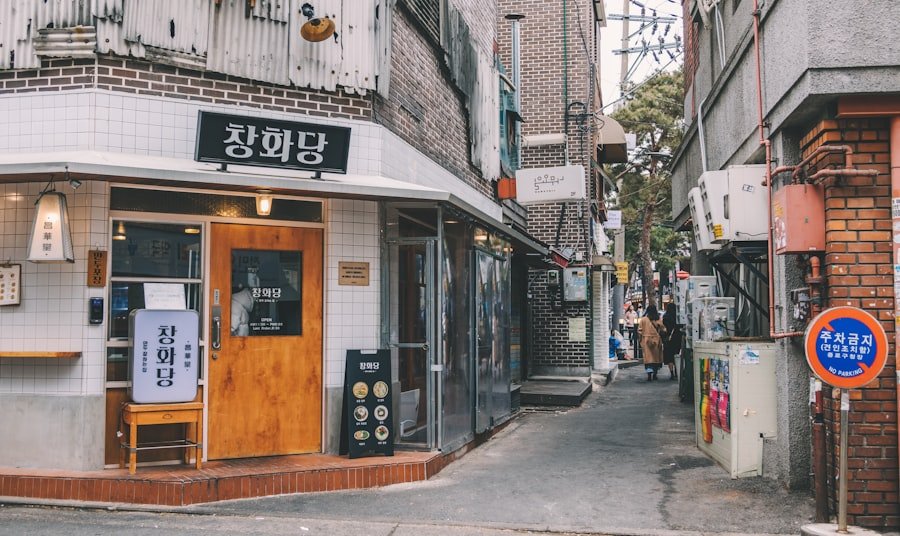

‘Sugohaesseoyo!’: How to Acknowledge Someone’s Hard Work in Korean
Acknowledging hard work is a fundamental aspect of fostering a positive environment, whether in personal relationships, workplaces, or educational settings. Recognition serves as a powerful motivator, encouraging individuals to continue striving for excellence. When we take the time to appreciate the efforts of others, we not only validate their contributions but also create a culture of support and encouragement.
This recognition can lead to increased morale, productivity, and a sense of belonging within a community. In many cultures, including Korean society, the act of acknowledging hard work transcends mere words. It embodies a deeper understanding of the sacrifices and dedication that individuals invest in their tasks.
By recognising these efforts, we affirm the value of hard work and inspire others to pursue their goals with renewed vigour. In this way, acknowledgment becomes a vital tool for nurturing relationships and fostering a sense of unity among individuals. Learn Korean in Oslo! NLS Norwegian Language School is now offering classes. Register today.
Table of Contents
ToggleSummary
- Acknowledging hard work is crucial for building strong relationships and fostering a positive work environment.
- In Korean society, showing appreciation is deeply rooted in the culture and plays a significant role in social interactions.
- “Sugohaesseoyo!” can be expressed in various ways in Korean, such as “고생하셨습니다”, “수고하셨어요”, and “수고하셨습니다”.
- It is important to use formal language when acknowledging someone’s hard work in a professional setting, while informal language can be used in more casual situations.
- Non-verbal ways of showing appreciation in Korean culture include bowing, offering gifts, and using polite body language.
The cultural significance of showing appreciation in Korean society
In Korean culture, showing appreciation is deeply ingrained in social interactions and is often viewed as a reflection of one’s character. The concept of “jeong,” which refers to a deep emotional bond or affection, plays a significant role in how appreciation is expressed. When someone acknowledges another’s hard work, it strengthens this bond and reinforces social ties.
This cultural significance is particularly evident in various settings, from family gatherings to professional environments. Moreover, the act of expressing gratitude is often accompanied by specific rituals and customs that highlight its importance. For instance, bowing is a common gesture used to convey respect and appreciation.
In the workplace, acknowledging a colleague’s efforts can lead to a more harmonious atmosphere, fostering collaboration and teamwork. Thus, understanding the cultural nuances surrounding appreciation in Korea is essential for anyone looking to build meaningful connections within this society.
Different ways to say “Sugohaesseoyo!” in Korean

The phrase “Sugohaesseoyo!” translates to “You worked hard!” in English and is a common expression used to acknowledge someone’s efforts in Korean. However, there are various ways to convey this sentiment, each with its own nuances and contexts. For instance, one might use “Sugohaess-eoyo!” in a more casual setting among friends or peers, while “Sugohaessseubnida!” would be more appropriate in formal situations or when addressing someone of higher status.
Additionally, variations of this phrase can be tailored to fit specific circumstances. For example, if someone has completed a challenging project, one might say “Jal haess-eoyo!” which means “You did well!” This not only acknowledges their hard work but also highlights the quality of their output. By diversifying the expressions used to show appreciation, individuals can communicate their sentiments more effectively and meaningfully.
Using formal and informal language when acknowledging someone’s hard work
In Korean society, the use of formal and informal language is crucial when acknowledging someone’s hard work. The distinction between these forms of speech reflects the hierarchical nature of Korean culture, where respect for elders and authority figures is paramount. When addressing someone older or in a position of authority, it is essential to use formal language to convey respect.
Phrases like “Sugohaessseubnida!” are appropriate in such contexts. Conversely, informal language can be used among friends or younger individuals. In these situations, expressions like “Sugohaess-eoyo!” are more fitting and create a sense of camaraderie.
Understanding when to switch between formal and informal language is vital for effective communication in Korean culture. It not only demonstrates linguistic proficiency but also shows an awareness of social dynamics, which can significantly enhance interpersonal relationships.
Non-verbal ways to show appreciation in Korean culture
Non-verbal communication plays an integral role in expressing appreciation within Korean culture. Gestures such as bowing or offering a warm smile can convey gratitude just as powerfully as words. A slight bow when thanking someone for their hard work signifies respect and acknowledgment of their efforts.
Additionally, maintaining eye contact during these interactions reinforces sincerity and connection. Another non-verbal way to show appreciation is through small gifts or tokens of gratitude. In Korea, it is common to present food items or handwritten notes as gestures of thanks.
These acts not only express appreciation but also reflect the giver’s thoughtfulness and consideration for the recipient’s feelings. By incorporating non-verbal cues into expressions of gratitude, individuals can create a more profound impact on their relationships.
Incorporating Korean etiquette and customs when acknowledging hard work

When acknowledging hard work in Korea, it is essential to incorporate local etiquette and customs to ensure that the gesture is received positively. For instance, presenting compliments should be done with humility; excessive praise may be perceived as insincere or boastful. Instead, it is advisable to frame acknowledgments in a way that highlights the collective effort rather than focusing solely on individual achievements.
Additionally, timing plays a crucial role in how appreciation is expressed. Acknowledging someone’s hard work immediately after they have completed a task can enhance the impact of the recognition. Furthermore, public acknowledgment during team meetings or gatherings can foster a sense of pride among individuals and encourage others to strive for excellence as well.
By adhering to these customs and etiquette, one can effectively navigate the complexities of expressing appreciation in Korean culture.
The role of humility and modesty in Korean expressions of gratitude
Humility and modesty are core values in Korean society that significantly influence how gratitude is expressed. When acknowledging someone’s hard work, it is common for both the giver and receiver to downplay their contributions or achievements. This cultural tendency stems from the belief that boasting about one’s accomplishments can be seen as arrogant or disrespectful.
For instance, when receiving praise for their efforts, many Koreans may respond with phrases like “Geureon ge aniya,” meaning “It’s nothing.” This response reflects their modesty and desire not to draw attention to themselves. Understanding this cultural dynamic is essential for anyone looking to navigate social interactions in Korea effectively. By embracing humility in expressions of gratitude, individuals can foster deeper connections based on mutual respect and understanding.
Recognising the effort and dedication behind the hard work
Recognising the effort and dedication behind someone’s hard work goes beyond mere acknowledgment; it involves understanding the journey they undertook to achieve their goals. In Korean culture, where perseverance and diligence are highly valued traits, taking the time to appreciate the process can significantly enhance the impact of your recognition. For example, when acknowledging a colleague’s successful project completion, one might highlight specific challenges they faced along the way or commend their commitment to overcoming obstacles.
This level of recognition not only validates their hard work but also demonstrates genuine interest in their experiences and struggles. By focusing on the effort behind the achievement, individuals can create a more meaningful connection that fosters trust and camaraderie.
How to tailor your acknowledgement based on the level of achievement
Tailoring your acknowledgment based on the level of achievement is crucial for ensuring that your recognition resonates with the individual being acknowledged. In Korean culture, different levels of achievement warrant varying degrees of recognition. For instance, completing a routine task may only require a simple “Sugohaesseoyo!” while achieving a significant milestone might call for more elaborate praise.
When recognising substantial accomplishments, consider incorporating specific details about what made their achievement noteworthy. For example, you might say, “Your dedication to this project was truly inspiring; you managed to overcome numerous challenges with grace.” This approach not only acknowledges their hard work but also highlights the significance of their achievement within the broader context of your relationship or team dynamics.
The impact of acknowledging hard work on building strong relationships
Acknowledging hard work has far-reaching implications for building strong relationships within any community or organisation. In Korean society, where interpersonal connections are highly valued, recognition serves as a bridge that fosters trust and collaboration among individuals. When people feel appreciated for their efforts, they are more likely to engage positively with others and contribute to a supportive environment.
Moreover, regular acknowledgment can lead to increased loyalty and commitment among team members or friends. When individuals feel valued for their contributions, they are more inclined to invest time and energy into maintaining those relationships. This cycle of recognition creates a positive feedback loop that strengthens bonds and encourages collective growth within communities.
Tips for incorporating “Sugohaesseoyo!” into your everyday interactions in Korean society
Incorporating “Sugohaesseoyo!” into your everyday interactions can significantly enhance your relationships within Korean society. Start by observing opportunities where you can genuinely acknowledge someone’s efforts—whether it’s a colleague who stayed late to finish a project or a friend who helped you with a task. Timing is key; expressing your appreciation soon after the effort has been made will have a greater impact.
Additionally, consider personalising your acknowledgment by adding specific details about what you appreciated about their work. This not only makes your recognition more meaningful but also shows that you are paying attention to their contributions. Lastly, remember that consistency matters; regularly acknowledging hard work will help establish you as someone who values effort and dedication within your social circles.
In conclusion, understanding how to acknowledge hard work effectively within Korean culture requires an appreciation for its nuances and customs. By embracing expressions like “Sugohaesseoyo!” alongside non-verbal gestures and cultural etiquette, individuals can foster deeper connections built on mutual respect and understanding. As you navigate these interactions, remember that genuine recognition has the power to strengthen relationships and create a supportive community where everyone feels valued for their contributions—an ethos that resonates deeply within Korean society.
For those interested in delving deeper into the intricacies of Korean language and culture, consider enrolling in Korean courses at the NLS Norwegian Language School in Oslo. These courses offer an excellent opportunity to learn not only the language but also the cultural context that shapes communication styles in Korea—an invaluable asset for anyone looking to engage meaningfully with this rich culture.
If you want to learn Norwegian, you can register for classes here. We look forward to hearing from you and helping you become fluent in Norwegian.





